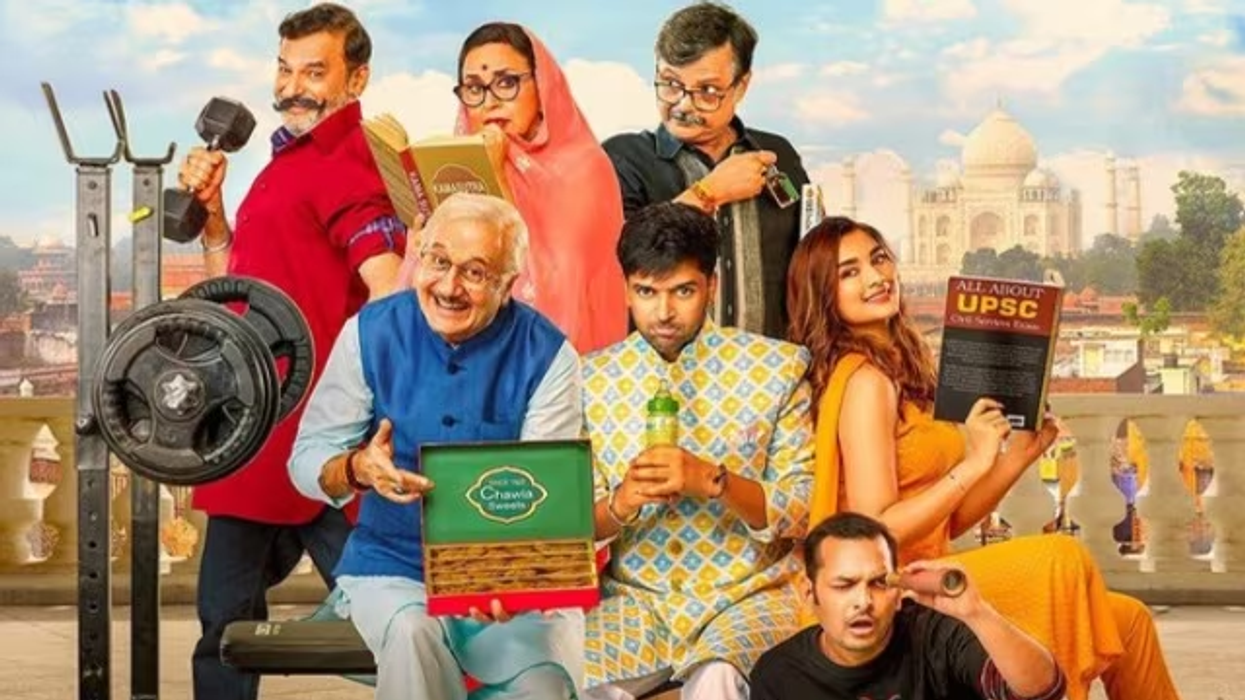Known for belting out such chartbusters as “Banja Tu Meri Rani”, “Naach Meri Rani”, and “Ishare Tere”, the well-known singer and songwriter Guru Randhawa makes his big screen debut with this week’s release Kuch Khattaa Ho Jaay. Helmed by G. Ashok, the film also features Saiee Manjrekar, Anupam Kher, and Ila Arun in the cast.
Kuch Khattaa Ho Jaay promises to be a slice-of-life family entertainer but does it succeed in meeting audiences’ expectations? Let’s find out.
Iraa (Manjrekar) is a studious girl who wants to become an IAS officer. She does not want any distraction in life that stops her from fulfilling her dream. However, her family wants her to get married and settle down. On the other hand, Heer (Randhawa) belongs to an affluent business family with a chain of sweet shops in Agra. His grandfather (Kher) expresses his last wish to see his grandson get married and get to play with his great-grandson before breathing his last. Iraa and Heer marry each other under pressure, but a misunderstanding leads both families to believe that the couple is expecting a child. What happens next forms the crux of the story.
Kuch Khattaa Ho Jaye has drama, comedy, and romance. The film also tackles parental and societal pressures. However, nothing hits the right note. Barring a few one-liners, the script lacks freshness.
Guru Randhawa acts much better in his music videos than what he does in his debut film. Entertaining audiences for a couple of minutes in a song is easier than holding their attention in a film with more than 2 hours of runtime. If the singer wishes to act more in films, he needs proper training. Saiee impresses with her charm and simplicity. She does well in emotional scenes. What makes the film a little bit watchable is the performance of seasoned actors like Anupam Kher and Ila Arun. Paresh Ganatra, Atul Srivastava, and Paritosh Tripathi are also good




